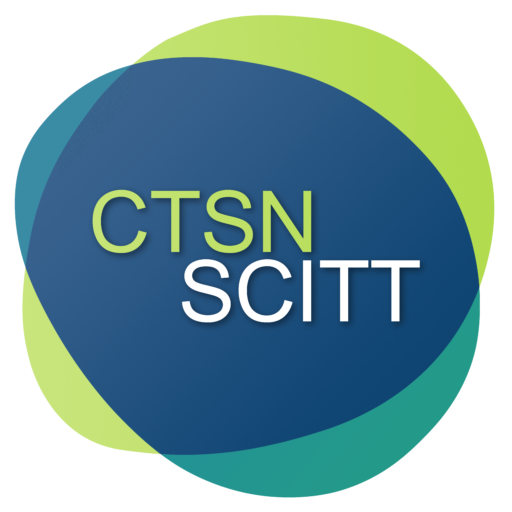Applications to CTSN SCITT are made through the via the GOV.UK digital service called Apply for teacher training.
Before making your application it is worth considering the following points:
You will have to write a personal statement to support your application. This should mention why you are interested in becoming a teacher, and what relevant experience you have for the role.
In order to do this, it will help if you are able to visit a school and observe some learning and teaching in action; this will also give you something to talk about should you be called for interview. Please contact CTSN SCITT if you need help in arranging this. If you are not able to arrange to visit schools, have you been able to speak to teachers? Read some teaching articles in the press? Are you sure you know what modern teaching is really like?
You will also need two professional referees; at least one of these ought to be able to comment on your suitability and skills in working with children and one, particularly for secondary, might also deal with your relevant subject qualifications. They will not be contacted until you accept a place on a course. For recent graduates, it would be useful to have one reference from a university tutor and one from someone who can comment, in a professional capacity, on any school experience that you might have arranged as part of the application process; or from other experiences you have of working with children, preferably in the age range for which you are applying to teach. This might be from some form of youth work, tutoring, or sports coaching, etc. It is very helpful if both of your referees can include the statement “I do not know of any reason why this applicant might be unsuitable to work with children” in their reference. You might like to refer to the Get into Teaching page about references.
You will also need to know the correct code for the course/s for which you wish to apply. You can find these on the DfE Apply website, but it might be quicker to get the course codes here (see below) before you go apply.
Applications with CTSN SCITT and/or our lead partners’ course codes on will come through to our recruitment teams. For all our subjects and course codes please see our Our Courses page
Providers may appear to be very similar, and Qualified Teacher Status (QTS) is the ultimate objective. However, while the qualification may be the same, the training experience, style, and curriculum will differ between providers. It is important to explore these differences.
WHY SHOULD I CHOOSE CTSN SCITT?
Some providers only offer a QTS. Qualified Teacher Status (QTS) is a legal requirement to be able to teach in state schools, under local authority control, in England and Wales. We also offer a PGCE (Postgraduate Certificate of Education), an academic qualification for our non-salaried Trainees. There are many reasons for this. It is another feather in the cap for our Trainees, and our teacher training is strongly research-focused, which lends itself to a PGCE qualification. Also, we have carefully selected the Anglia Ruskin University (ARU) PGCE programme, which is a good fit with our Teacher Education Curriculum, reducing the workload for our Trainees.
Our curriculum is ambitious, going beyond the minimum requirements set by the DfE, as we want our Trainees to be as classroom ready as they can be when finishing our programme. All CTSN’s training is both practically focused and research engaged. Our training at every level is linked to the latest educational research into effective teaching and learning. CTSN is not just about initial teacher education. Training to teach with CTSN is more than just a one-year commitment. We have not one but three Teaching School Hubs within our partnership, and a Maths Hub. This is unique.
WHAT DOES THE CTSN SCITT PROGRAMME LOOK LIKE?
Your training starts at the beginning of September and continues through to mid-July. You will have one day a week of centre-based training and will be taught the programme. Full-time trainees will spend 4 days a week in school, and part-time trainees two days a week. When in school, you will spend some time teaching in a
supported way, with this increasing throughout the year to 80% teaching in your final 6 weeks. During your training, you will also get the opportunity to:
- Observe experienced teachers;
- Work with students in smaller groups, or in one-to-one tutoring;
- Spend time on assessment & planning;
- Read, write & research into effective learning and teaching.
Secondary centre-based training: Fridays alternate between subject and centre-based training. From Monday to Thursday, we are in placement school training, collecting evidence in school and combining the theory with the practice.
Primary (5-11yrs & 3-7yrs) Centre-based training: Fridays (occasionally Thursday) centre-based training. Mon-Thurs in placement school training, collecting evidence in school, and combining the theory with the practice.
WHAT SUPPORT WILL I RECEIVE FROM CTSN SCITT’S PROGRAMME?
CTSN SCITT is proud of the support it affords our Trainees. Our Trainees are supported & encouraged by a diverse ITT team drawn from across our partnership. Our centre-based training is delivered by experienced practitioners & subject specialists to develop subject knowledge & pedagogy. Each Trainee has a designated Mentor in each placement school (hosting weekly 1:1 meeting with the Trainees, discussing lesson planning, teaching, observations, supporting deliberate practice and setting targets). A designated Senior Tutor works with each Trainee to guide them through the programme, overseeing all aspects of the ITT year. Senior Tutors are not based in a trainee’s school but visit the Trainees throughout the course and regularly communicate with them.
CTSN is committed to the well-being of our Trainees and, as such, has dedicated Mental Health First Aiders. Our programmes incorporate well-being to help develop habits and life choices to support welfare as an integral part of their teaching career. We don’t just want you to learn how to teach; we want to help you thrive in your career. You’ll have:
- A mentor and professional tutor in your placement school.
- A senior tutor who will visit you at each placement.
- Access to the programme lead and peer support from fellow trainees.
- Well-being support from our Mental Health First Aiders.
To learn more about type or person we are looking for and for a Teacher Trainee role description click here.
To read our Frequently Asked Questions click here



